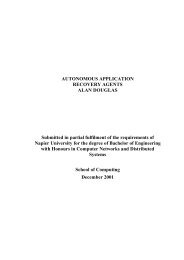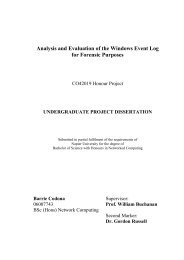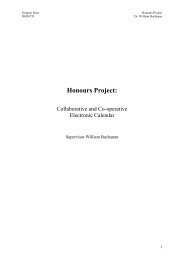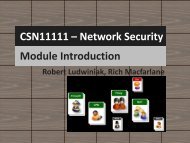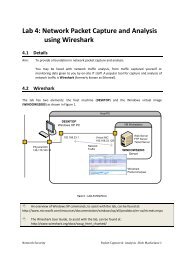Complete set: Intro to C - Bill Buchanan
Complete set: Intro to C - Bill Buchanan
Complete set: Intro to C - Bill Buchanan
Create successful ePaper yourself
Turn your PDF publications into a flip-book with our unique Google optimized e-Paper software.
}<br />
x *= x;<br />
System.Console.WriteLine("Value in the method is {0}",x);<br />
return(x);<br />
static void Main(string[] args)<br />
{<br />
double val1,val2;<br />
val1=10;<br />
}<br />
}<br />
}<br />
val2=findSquare(val1);<br />
System.Console.WriteLine("Value now is {0}",val1);<br />
System.Console.ReadLine();<br />
Sample Run Error! Reference source not found.<br />
Value in the method is 100<br />
Value now is 10<br />
4.2.2 Passing by reference<br />
It is possible <strong>to</strong> pass a reference of a parameter, so that the parameter is changed by<br />
the method. For this the ref keyword is inserted before the variable that is passed. It<br />
can be see from the test run of Program 4.2 that the actual value of the parameter<br />
can now be changed by the method.<br />
Program 4.2: Program4_2_PassingByReference<br />
using System;<br />
namespace ConsoleApplication2<br />
{<br />
class Class1<br />
{<br />
duction <strong>to</strong> .NET<br />
<strong>Intro</strong><br />
static double findSquare(ref double x)<br />
{<br />
x *= x;<br />
System.Console.WriteLine("Value in the method is {0}",x);<br />
return(x);<br />
}<br />
static void Main(string[] args)<br />
{<br />
double val1,val2;<br />
}<br />
val1=10;<br />
val2=findSquare(ref val1);<br />
System.Console.WriteLine("Value now is {0}",val1);<br />
System.Console.ReadLine();<br />
Agilent .NET Course: Type and Debugging 3


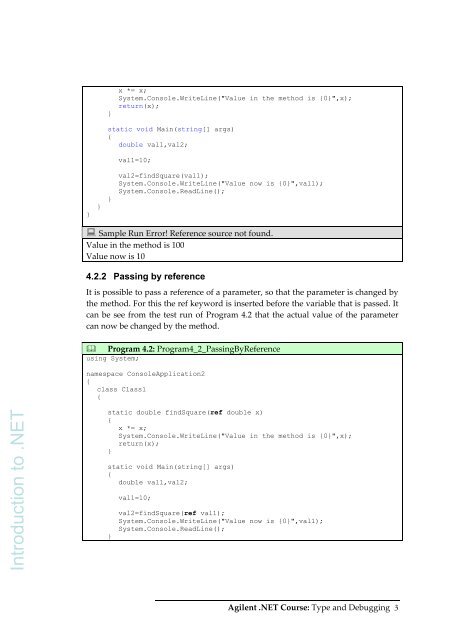
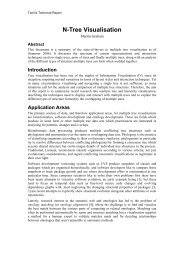
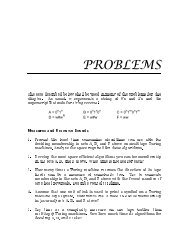
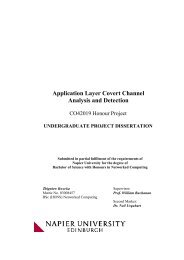
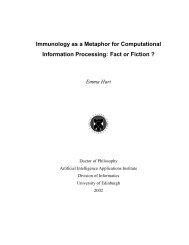


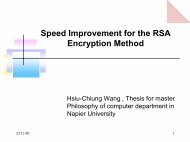
![Unit 5. Switches and VLANs [PDF]](https://img.yumpu.com/34422504/1/184x260/unit-5-switches-and-vlans-pdf.jpg?quality=85)
